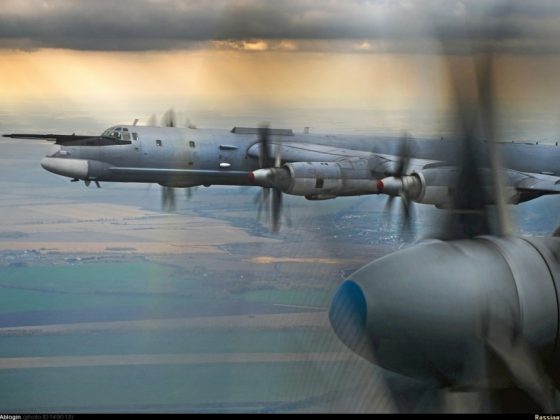Korea, Vietnam, Afghanistan—Georgia, Ukraine, Syria?
Şener Aktürk (Istanbul):
“Russian Military Uses Syria as Proving Ground, and West Takes Notice,” wrote The New York Times. Who would have thought that after pronounced Russian military-political reassertions in Georgia, Crimea, eastern Ukraine, and now Syria, the West would merely “take notice“? I am genuinely surprised. I wonder if all international relations (IR) theories have failed in the case of Russian resurgence in the Caucasus, Ukraine, and the Middle East.
I moved away from IR theory—balance of power, deterrence, international norms, Realism, Constructivism, etc.—in favor of comparative politics. But I am surprised that there hasn’t been a single ‘‘Cuban Missile Crisis”-type of military standoff between the United States and Russia over, say, Crimea, or recent Russian actions in Syria. How can we interpret or think theoretically about what has happened and is happening? Is this simply an agency-based (Western alliance) “failure” to balance or deter Russia, or is some kind of “Munich appeasement” metaphor appropriate? Is there some greater strategic wisdom to allowing Russia to reassert itself in Georgia and Syria and annex what is probably the most strategically-valuable part of Ukraine (Crimea)? I am really curious as to what IR scholars have to say about the theoretical ramifications of what has happened.
Mikhail Troitskiy (Moscow):
Realism says you react to the power of other actors or to the threats they pose to your security. You gauge your response depending on how strong you perceive the impending power imbalance or threats to your security to be. Reaction to the breaking of “norms” is not a widespread notion among Realists. The United States reacted harshly to the missiles in Cuba because it was a vital security issue for the United States. Neutralizing that threat was worth the brinksmanship. Georgia, Crimea/eastern Ukraine, and Syria by far do not qualify as vital threats to U.S. security or as a demonstration of a dangerous increase in Russian power.
That said, the U.S./NATO/EU response does look proportionate to the magnitude of the challenge—do not forget about the sanctions, debates about arming Ukraine, harsh notices issued to Russia by Turkey, Saudi Arabia, the United States, and others over Syria—statements I think Moscow takes seriously. So there has indeed been a certain reaction consistent with Realist assumptions, even if not near-nuclear escalation. Whether the kind of Liberalism that talks about the robustness of multilateral norms and institutions will be vindicated remains to be seen. We need time to test this kind of claim using the case of Russia. Neither Liberalism nor Constructivism offer much in terms of quick recipes for action to respond to changes in the status quo.
Şener Aktürk:
True, the annexation of Crimea or increased Russian-Iranian military presence in Syria are not “immediate” security threats to the United States. Perhaps the Cuban Missile Crisis is not the most appropriate analogy. Better analogies may be the Korean, Vietnam, and Afghanistan War of the 1980s — three cases where the Western alliance (and/or the United States) actively tried to contain Communism and/or Soviet expansion far away from U.S. soil. Even the Crimean War of 1853-1856 could be one such analogy. Then again, in the 20th-century examples, there was a global contest between two superpowers, with both fearing domino/demonstration effects and the loss of credibility in the eyes of allies. That difference might account for the relative quiescence of the West today. In the cases of Ukraine and Georgia (and Syrian opposition), I guess the United States does not fear that it would lose credibility or some kind of global contest against Russia, if it does not seek to actively deter the latter and protect seemingly pro-U.S. parties (such as the Kyiv government, Saakashvili, the Free Syrian Army). I was, of course, thinking of conventional deterrence, not a nuclear stand-off, and that is yet another reason why the Cuban Missile Crisis is a bad analogy. But the Korea, Vietnam, and Afghanistan analogies do seem more appropriate to contrast with Georgia, Ukraine, and Syria.
Mikhail Troitskiy:
I would say Korea, Vietnam, and Afghanistan all fit neatly into the pattern of U.S. and allied reactions to challenges to the status quo. U.S. involvement in the Korean War began when a direct threat materialized to U.S. contingents based in South Korea, which likely happened because former president Kim Il Sung overplayed his hand.
Vietnam was different. There, U.S. engagement escalated gradually and followed the logic of “mission creep” (which will most certainly haunt Russia in Syria). At the stage in the Vietnam War comparable to the current state of conflict in eastern Ukraine (with the rebels stopping short of advancing on the country’s capital), the scale of U.S. involvement seems also to be comparable. Washington already had boots on the ground in Vietnam at that stage, but not too many, considering that the U.S. presence began quite a few years earlier. But of course the stakes to U.S. policymakers seemed to be much higher in Vietnam than today’s Ukraine, perhaps, interestingly, because the Obama administration has much more faith in the Ukrainian government than the United States had in the South Vietnamese regime at the time.
Afghanistan was a proxy war in which the United States did not get seriously involved from the very beginning, if at all. Arms to the mujahideen were being supplied mainly through proxies, and the game-changing Stinger rockets entered the scene only five years into the conflict and as a response to major Soviet battlefield successes (for perspective, we are still only in the second year of the Ukraine conflict). Also remember that the condemnation of the Soviet invasion of Afghanistan by world powers was almost universal. That gave the United States plenty of additional political leverage and confidence. Compare, for example, China’s position on Afghanistan in the 1980s with its position on Crimea now.
Overall, there is no major discrepancy between U.S. reactions to Korea/Vietnam/Afghanistan and Ukraine/Syria. China is another case in point—Afghanistan and, of course, Vietnam were major security concerns for Beijing while Crimea and Syria are too far away and relatively unimportant from the Chinese perspective. So everyone’s reactions have always been commensurate with the extent of the perceived threat.
Finally, on a related subject of alliance commitments, I have seen several publications recently arguing that superpowers have always enjoyed much more freedom of maneuver in responding to allies’ concerns than one may have expected. “Wagging the dog” has essentially been a myth, with the United States being able to drag its feet on defense commitments it was reluctant to honor. But this did not seriously harm U.S. credibility as a security provider—mainly because expectations were not high and there was no alternative to the United States as the main protector. So damage to U.S. credibility as a result of a lack of brisk reaction to allied troubles is likely not to be significant, judging by historical precedents.
The statements made and views expressed are solely the responsibility of the authors.










